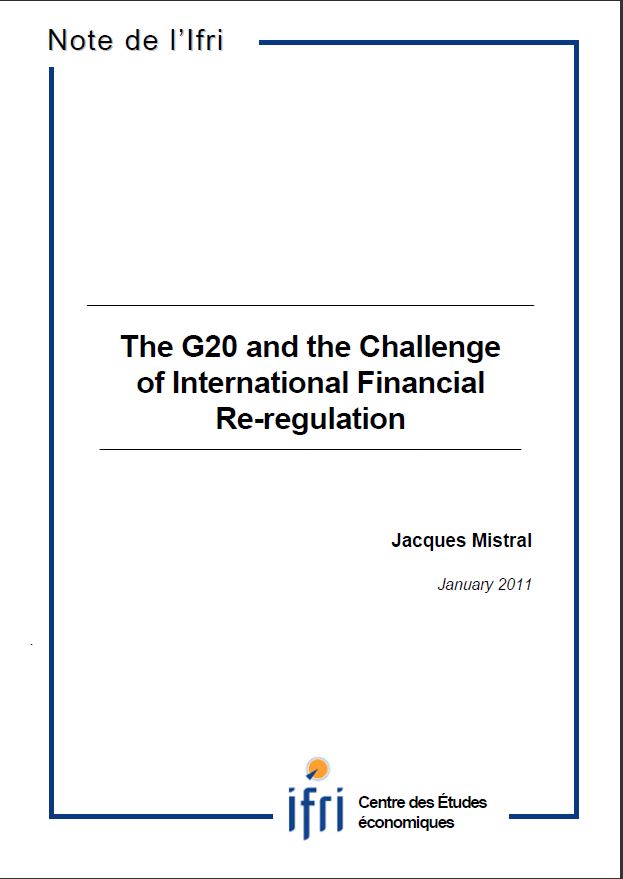The G20 and the Challenge of International Financial Re-regulation

The crisis, it is now widely accepted, means that markets failed. Meeting for the first time in Washington in November 2008, the G20 embarked in a ride of re-regulation. Months of negotiations later, it dramatically appears different to agree on principles and broad objectives, and to write and enforce rules and commitments.
Toronto, the fourth G20 summit, delivered few tangible progresses. The paper first discusses the fundamental reasons why international convergence of financial regulations is difficult in a multipolar and heterogeneous world. Nevertheless, the prevention of systemic risk and the reinforcement of bank regulation and supervision have made significant steps forward and will testify in Seoul of successful actions following the G2O decisions. This exemplifies what we call “workable convergence”. For the future, the agenda will raise more treacherous questions like the treatment of SIFIs and derivatives. Views could be even more confrontational regarding the convergence of accounting standards and the activity of investment banking. The conclusion discusses the chance to make the financial system safer and calls for the Seoul summit not only capitalizing on existing results but giving a fresh momentum to improve the convergence of international financial standards.
(September 24th, 2010)

Available in:
Regions and themes
ISBN / ISSN
Share
Download the full analysis
This page contains only a summary of our work. If you would like to have access to all the information from our research on the subject, you can download the full version in PDF format.
The G20 and the Challenge of International Financial Re-regulation
Find out more
Discover all our analyses
Korea-EU Direct Investment Links: The Neglected Facet of a Tight Partnership
Despite their difference in size, Korea and the EU have developed over time a strong and deep relation through direct investment flows. Germany dominates the relationship, but there remains ample room for the other EU member-states to further develop their relations with Korea.
The EU and Innovation: When Business Meets Politics
Innovation, entrepreneurship, growth and competitiveness go hand in hand. This short paper looks at two areas where the EU plays a role to help drive innovation: regulation and financing.
A Transatlantic Free Trade Agreement? Weimar Triangle Analyses: French, Polish and German viewpoints on European questions
On an initiative of the German Council of Foreign Relations (DGAP), the Study Committee for Franco-German Relations (Cerfa) of the French Institute of International Relations (IFRI) and the Polish Institute of International Affairs (PISM) are regularly publishing short contributions on a common subject, written by three experts of these institutes. The purpose of these “Weimar Triangle Analyses” is to give the French, Polish, and German views on central questions of European politics and European integration.
Decoupling the Oil and Gas Prices: Natural Gas Pricing in the Post-Financial Crisis Market
This paper looks into natural gas pricing in the post-financial crisis market and, in particular, examines the question whether the oil-linked gas pricing system has outlived its utility as global gas markets mature and converge more rapidly than expected and as large new resources of unconventional gas shift the gas terms-of-trade.




